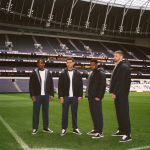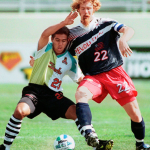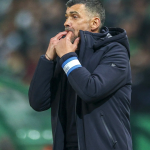
'Everything we do is for the club and the city', interview with San Diego Loyal president
One of the most interesting realities of US football talks about its philosophy between football and identity
April 7th, 2023
Football in the United States is rapidly gaining popularity and media exposure and has carved out a place for itself in the complicated ecosystem of domestic sports, both through imports from Europe and South America and through a dense scrub of local clubs that have mushroomed over the past five years. In fact, besides the best-known MLS clubs that have multiplied their market value in a short time, there are many other more or less small realities that have decided to invest in football as a tool for enhancing local communities and minorities. And which, thanks to their geographical and cultural location, have been able to assert themselves immediately with a very carefully researched aesthetic.
One of the most successful examples is that of San Diego Loyal, the team from the Californian city on the Mexican border. A crossroads between worlds and cultures that are far apart, but which have found in football an element of encounter and cohesion. We had the opportunity to interview Ricardo Campos, the president, and Travis Lamprecht, Vice President, Marketing & Communications, about the history of the club, their corporate philosophy and their plans for the future before the start of the season of the USL Championship, one of the subordinate leagues of the MLS, in their Californian home.
How did your love of football come about?
I am originally from Brazil and later moved to the United States. So I understand the differences, but I have learned to adapt and enjoy it. I think the future here is very exciting because the United States has an incredible power to take things to another level in sports. And that can be negative or even mean more financial investment. I read an article the other day that said Italian football has lost more than $2 billion since 2020, after the pandemic, and that's painful because Italian football is historic in many ways. But this new generation does not see it the way I did back then.
I worked for Major League Soccer and the New York Red Bulls for seven or eight years, I had some experience in established companies. Then I started a team here (in San Diego) in the NASL called 1904 and it was a struggle to find the funding to build a stadium. We tried to skip the many steps necessary to grow from a small club through the seasons. We tried to start immediately at a professional level. So 1904, which involved Demba Ba and Eden Hazard, never got going, did not play a single game and was taken over by another club.
What made you decide to start a team here in San Diego?
A few years later, with the right investment and a person on the ground, Andrew Vassiliadis, we were able to really take off. But our goal was always to create a brand that reflected San Diego. So we held a lot of listening sessions, we brought together groups of people who are passionate about football, regular fans, families and military. We had ten different groups and we asked them what they wanted from a club. "What do you want from a club?", "What do you want this brand to be?", "What do you think San Diego stands for?". The uniqueness of San Diego lies in its incredible diversity. It ranges from very basic and disadvantaged communities to one of the richest communities in the world. But the common theme - and San Diego has a lot of people who are not from San Diego, I am one of them, I am not from here, but I consider it my home - is loyalty to San Diego. We did consider going with the more traditional name San Diego FC or San Diego Football Club, but we wanted something in the name that would immediately connect with the people here. That's why we chose San Diego Loyal.
Then we focused on putting down roots in the community with community partners like Pride, Chicano Federation and many groups that have been working close to people for years. We started in 2020, played a game and then Covid came, which was not a good way to interact with fans. But in the last two years we have had a phenomenal response, a great end to the year, a sell-out opening game last weekend. From the players' point of view, we are trying to represent San Diego, a city with an immense amount of talent, but it takes time.
Football in the US is regaining the connection with the territory that it is losing in Europe, what do you think are the reasons for that?
The main reason is that most fans of the big clubs are no longer in their hometowns. In terms of numbers, most Manchester United fans are not in Manchester, they are in the rest of the world. So these clubs are a bit too focused on the world perspective compared to their local communities. Sometimes these clubs lose sight of what is special after they have gone international and their brand has become global. As far as our club is concerned, we had to conquer our market first before we tried to conquer everything else. We had to connect with our market or we would never have connected or had a market. The USL model is that the club is locally owned first, so it was necessary for our club to have a strong connection with the city.
Your game jerseys immediately became iconic. What is the production process like together with your technical sponsor Charly?
In the first two years we worked with adidas because we wanted to achieve a high level of professionalism in the first years of the club. But when we started the club, we also designed a unique colour in the crest, which we called Torrey Green. No one manufactures this colour, it has to be custom made for us. When we evaluated different partners who could do this customisation, we found in Charly the same mentality as us, to want to create something special. Charly is a Mexican brand that has relationships with many LigaMex teams, which shows a certain professionalism, and they are trying to enter the US market where they have not been before. Their commitment to us and the fact that they are a brand that cares about the Mexican market has allowed us to make the adjustments we wanted. In the last two years we have received great feedback from the fans and the press. Last year we made it into Soccerbible's Top17 and this year we are thrilled with what we have launched so far and we have two more jerseys that we think are even better.
The design of the jersey is mainly from the collaboration between us and Charly and the designer of the club crest, who is very much involved in the design of the jersey. We contributed a lot, especially on the away jersey: representing the city and the neighbourhood on the jerseys was an important part for us. At our level, the opportunity to collaborate at the design stage is much more fluid than at a higher level. So we are privileged to be able to realise a lot of the things we have talked about in this space quite quickly, that's the beauty of it. Other companies take two or three years to make customised jerseys, Charly does it in four, five months at the most. And the quality is always the same.
Now that the relationship between football and fashion is becoming closer, how has your way of working on the club's aesthetics and communication changed?
I think fashion and football are more symbiotic than other sports. Even if you start with the bare essentials, it's a t-shirt - not a jersey - that you can wear to the bar, outside or on the beach. We always think about that in our design project. We want the jersey to resonate with football fans, but also with casual fans, with San Diegans who want to be proud of their hometown. We always think in two directions: for our players if it's comfortable, for our fans if they like it, but also as a lifestyle object, because that's how you get the attention of the whole community. That's always a focus for us: everyone is trying to do that, so we have to work harder and better to stand out.
It's not just about the design, it's about the storytelling. Travis has done a phenomenal job both this year and last year in terms of presenting the jersey. The jersey presentations are becoming more homogenous, with the same photos, epic videos, skylines. This year the idea was to focus on our community. So why not showcase the jersey with wall art? This way our community, the people who see the jersey for the first time, see it together with our players and us. Unity and community representation have been at the heart of the club from day one, and the players reflect where we live.
We have local talent that we have developed here. Our 16-year-old goalkeeper is from north San Diego, one of our midfielders, Alejandro Guido, was born in Chula Vista and that's where we did his mural. And for Collin Martin, the only openly gay football player in America, we did his mural in HillCrest, the centre of the LGBTQ+ community. Storytelling is important, it has a little more meaning than just posting pictures of jerseys. We always try to work harder than others and even other sports to get attention, so we try to think outside the box.
What is Landon Donovan's relationship with the club?
Landon Donovan lived in Los Angeles, had a distinguished career with the LA Galaxy, but is married to a San Diegan woman. When he retired, he moved to San Diego and immediately fell in love with the community here and began to get involved. When the founder of the club contacted him, he was immediately interested in participating in some way. He was one of the supporters, then he started as head coach and now he is the sporting director and helps us think about the future of the club, the youth component, the training facilities and the development of the club. On a professional level he can have a big impact and we also have a great head coach like Nate Miller who was his assistant in the past.
His connection with the club came through his connection with the community and that's what we want to do: represent the community in the right way and win in every way on and off the field. We have very clear goals for the coming years. We want to be the best team in the league. This community deserves a winning team, so our goal is to win more championships. We want to become a household name in San Diego so that everyone who thinks of San Diego thinks of San Diego Loyal. Everything we do is for the club and the city, not for us. That's our mentality. We want to be synonymous with the city, we want to be promoters of the city and reinforce the pride of the people here.
What influence has Ted Lasso had on US football?
Ted Lasso has definitely helped. There are some parts that are a little bit like that, but he's given opportunities to people who were not paying attention to the game before and suddenly they said 'oh, we have a football team in town'. One of the problems in the US is that we are extremely receptive to big brands. We have more Arsenal or Manchester United fans here than we do in England because they are very aligned with US fans. And that influence could obscure the fact that there is a club in town that has the same passion and costs a lot less to follow. The story of Ted Lasso helps people understand the connection of clubs to their community.
For me football is very beautiful, it has taken me all over the country. It shows how the beautiful game has spread everywhere. For me it's all about culture and community and how you can connect the club to that. The one word that comes to mind when I think of football is unity. It unites a team, it unites a community, it unites people, it is a union of cultures.
































